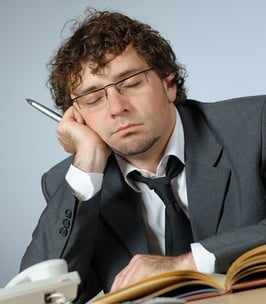Mock trials are an essential part of the legal profession, allowing attorneys and legal professionals to test their theories, refine their arguments, and gain valuable insights into how jurors might react to the facts of a case. However, one common challenge that many encounter during these mock trials is the issue of jurors falling asleep. Not only can this be frustrating, but it can also impact the effectiveness and accuracy of the trial. So, what can be done to handle mock jurors who fall asleep during these critical practice sessions?
One effective strategy is to set expectations early on. By clearly communicating to jurors that their participation is crucial to the success of the trial and emphasizing the importance of their attention and focus, they are more likely to remain engaged and alert. Additionally, outlining the schedule and timing of the trial can help jurors plan accordingly, ensuring they are well-rested and prepared.
Keeping jurors engaged throughout the mock trial is another key factor in preventing them from falling asleep. Making the trial as interactive as possible by incorporating visual aids, such as PowerPoint presentations, videos, and diagrams, can help illustrate key points and maintain jurors' interest. Encouraging jurors to ask questions and actively participate in discussions can also help them feel involved and invested in the process, keeping them alert and focused.
Comfortable seating is another essential consideration. Sitting in a hard chair for an extended period can be physically exhausting, especially during long and drawn-out trials. Providing jurors with comfortable seating options, such as padded chairs or even couches, can help them feel more at ease and less prone to nodding off.
Hunger and dehydration can also contribute to jurors' drowsiness. To combat this issue, it's important to provide jurors with plenty of snacks and drinks throughout the trial. Offering a variety of options, including water, coffee, tea, and healthy snacks like fruit, nuts, and granola bars, can help keep jurors satisfied and focused on the proceedings.
Lastly, keeping things fresh and unpredictable can help prevent jurors from becoming bored or disengaged. Changing up the format of the trial, incorporating different types of evidence and testimony, and introducing unexpected twists and turns can help keep jurors on their toes and maintain their alertness, even during long and potentially tedious mock trials.
In conclusion, while the issue of jurors falling asleep during mock trials can be frustrating, there are several strategies that can help address this problem. By setting expectations early on, keeping jurors engaged, providing comfortable seating, keeping them fed and hydrated, and incorporating variety into the trial, attorneys and legal professionals can ensure that their mock trials are successful in preparing them for the real thing.
Other A2L Consulting articles and resources related to jury selection, voir dire, mock trials and jury consulting:
- Jury Selection: Should You Follow Your Instincts About a Juror?
- 7 Questions You Must Ask Your Mock Jury About Litigation Graphics
- 6 Types of Jurors That Can Fly Under the Radar
- 10 Things Every Mock Jury Ever Has Said
- Why Listening to Data - Not Gut - Pays Off at Jury Selection
- 10 Signs of a Great Jury Questionnaire
- 10 Ways to Lose Voir Dire
- Do I Need a Local Jury Consultant? Maybe. Here are 7 Considerations.
- 10 Ways to Spot Your Jury Foreman
- Jury Selection: So Few Strikes, So Much at Stake
- The Voir Dire Handbook | Free Download | A2L Consulting
- Jury Selection and Voir Dire: Don't Ask, Don't Know
- 7 Tips to Take “Dire” out of Voir Dire






Leave a Comment